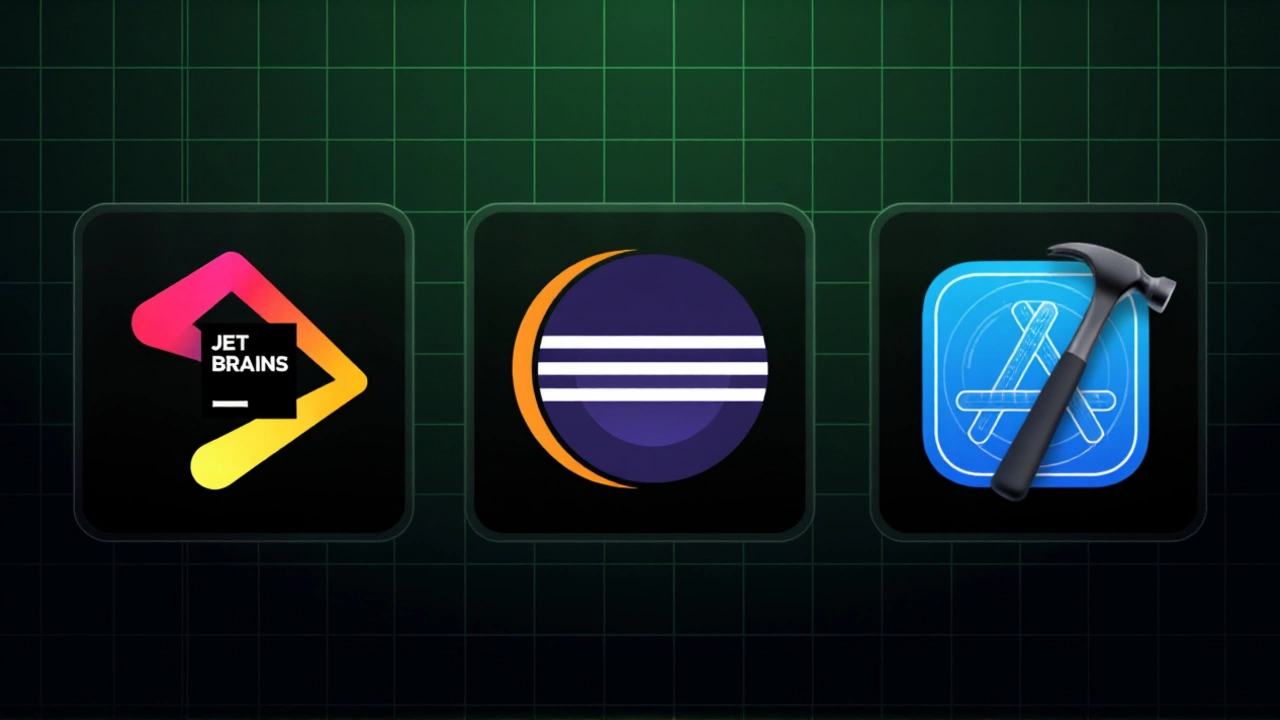
On November 18, 2025, GitHub quietly dropped one of the most significant upgrades to developer productivity in years: isolated subagents for JetBrains IDEs, Eclipse, and Xcode. The feature, part of a broader suite of public preview releases, lets developers offload research, documentation hunts, and code analysis to autonomous AI assistants—without cluttering their main chat window. It’s not just a tweak. It’s a fundamental shift in how coders interact with AI assistants—like having a junior dev who never gets distracted, never forgets context, and works silently in the background.
How Isolated Subagents Work (And Why It Matters)
Before this, asking GitHub Copilot to analyze a library’s documentation or compare three competing APIs meant your entire chat history would fill up with fragmented threads. Now, when you say, “Find me the latest Spring Boot security best practices,” Copilot doesn’t reply in your main window. Instead, it spins up a subagent—a sandboxed AI with its own memory, tools, and timeline. It digs through repositories, reads Javadoc, scans Stack Overflow, even checks GitHub Issues—all without you lifting a finger. When it’s done, the summary lands neatly in your chat, tagged as "Subagent completed: Security analysis." The original conversation? Clean. Uninterrupted. Ready for your next question.
What’s revolutionary isn’t just the isolation—it’s the autonomy. You don’t need to babysit it. No "continue?" prompts. No "do you want me to refine this?" The subagent runs to completion. For teams juggling legacy codebases, this means engineers can delegate tedious context-gathering while focusing on architecture. One senior dev at a fintech firm told us, "I used to spend 45 minutes before every sprint planning just getting up to speed. Now I hit one command and walk away. It’s like having a research assistant who knows every repo in our org."
The Four-Pillar Rollout: More Than Just Subagents
GitHub didn’t stop at subagents. On the same day, it rolled out three companion features, all targeting the same IDEs:
- Custom Agents: Developers can now package their team’s coding standards, internal APIs, and preferred patterns into reusable AI agents using Markdown config files. Think of it as a branded Copilot for your company’s codebase.
- Plan Mode: Instead of jumping straight into code, Copilot now generates step-by-step implementation plans for features or bug fixes—complete with dependencies, potential risks, and estimated time. Perfect for complex refactors.
- Auto Model Selection: Copilot now intelligently picks between GPT-5, GPT-5 mini, GPT-4.1, Sonnet 4.5, and Haiku 4.5 based on your subscription and task complexity. Pro+ and Enterprise users get a 10% discount on model multipliers when using Auto mode.
Each feature is designed to reduce cognitive load. Plan Mode tells you *what* to do. Subagents handle the *how*. Custom Agents ensure consistency. Auto Model Selection ensures speed without sacrificing quality. Together, they form a new workflow paradigm.
Who Gets Access—and What’s Required
Anyone with a valid GitHub Copilot license can use these features, no extra cost. But here’s the catch: you need the latest extension. For JetBrains users, that means IntelliJ IDEA Ultimate, PyCharm, WebStorm, GoLand, and all others in the suite. Eclipse and Xcode users must update to the November 18 build. And for enterprise teams? Admins must flip the "Editor preview features" switch in the GitHub Copilot policy console before anyone can see them.
Notably, Edit Mode—where you can fine-tune each line of AI-generated code—is still exclusive to Visual Studio Code and JetBrains IDEs. That’s a subtle but telling hint: GitHub’s long-term bet is on JetBrains as its premium IDE partner. The fact that Eclipse and Xcode get subagents but not Edit Mode suggests a tiered rollout strategy.

Why This Changes Everything for Teams
For solo devs, this is a productivity boost. For teams? It’s a cultural shift. Imagine onboarding a new engineer. Instead of a week of shadowing and docs, they get a Custom Agent pre-loaded with your team’s architecture patterns, testing standards, and deployment checklist. They ask a question. A subagent pulls up the last three similar PRs. Plan Mode outlines the next steps. It’s not just faster—it’s more equitable.
And the ripple effect? Less context-switching. Fewer meetings to "sync up." More time spent building. One engineering manager at a health tech startup reported a 22% drop in onboarding time after implementing Custom Agents and subagents. "We stopped treating AI as a code generator," they said. "Now we treat it as a co-pilot for knowledge work."
What’s Next? Feedback Drives the Roadmap
GitHub is clear: these are previews. The UI might change. The behavior might shift. But the company is betting big on developer feedback. In-product prompts invite users to rate subagent accuracy, report false positives, or suggest new tool integrations. GitHub also encourages participation in its public GitHub Discussions channels—though links are excluded per instructions.
There’s no official GA date yet. But insiders say the feedback window will close by March 2026, with a full rollout expected in Q3. The fact that GitHub bundled these features with Auto Model Selection suggests they’re preparing for a broader AI model pricing shift—possibly moving toward usage-based billing later this year.

Background: The Evolution of GitHub Copilot
Launched in 2021 as a basic autocomplete tool, Copilot has evolved into a full AI assistant ecosystem. The 2023 chat interface was a turning point. The 2024 addition of multi-file context and codebase awareness turned it from a suggestion engine into a collaborator. Now, with isolated subagents, it’s becoming a team member.
Compare this to competitors: Amazon CodeWhisperer still leans heavily on autocomplete. Google’s Gemini Code Assist lacks true agent autonomy. Even Microsoft’s own VS Code extensions don’t offer context-isolated workflows. GitHub’s move isn’t just incremental—it’s positioning itself as the de facto AI-native development platform.
Frequently Asked Questions
Do I need to pay extra for isolated subagents?
No. Isolated subagents are included with any active GitHub Copilot license—Personal, Pro, Business, or Enterprise. You only need to update your IDE extension to the November 18, 2025 version. No additional subscription or per-user fee applies.
Can I create my own subagents, or are they only pre-built?
You can’t create subagents directly, but you can create Custom Agents—pre-configured AI assistants with your team’s rules, tools, and knowledge bases. These Custom Agents can then be invoked as subagents during chat. Think of Custom Agents as templates, and subagents as the running instances.
Why aren’t subagents available in Visual Studio Code?
They are—just not yet. GitHub’s announcement specifically called out JetBrains IDEs, Eclipse, and Xcode for the November 2025 preview. VS Code support is expected in early 2026, likely alongside the general availability rollout. The delay may relate to deeper integration with Microsoft’s own AI stack.
How secure are these isolated subagents with corporate code?
GitHub states that subagents operate within the same secure sandbox as the main Copilot session. No code leaves the local environment unless explicitly configured to call external APIs. Enterprise admins can restrict tool access via policies—blocking internet queries or internal repo scans if needed. For highly regulated industries, this level of control is critical.
What happens if a subagent gets stuck or gives wrong info?
Subagents have built-in timeout limits (typically 90 seconds) and will abort if they hit a loop or fail to make progress. You can also manually cancel them. Results are flagged as "AI-generated" and must be reviewed—just like any Copilot suggestion. GitHub encourages users to report inaccuracies via in-IDE feedback tools to improve future versions.
Will this replace the need for human code reviews?
Absolutely not. Subagents handle context gathering and planning, not judgment. Code reviews still require human insight into architecture, security, and team standards. Think of subagents as your assistant who preps the report—your review is still the final audit. GitHub explicitly warns against automating compliance or security checks without human oversight.